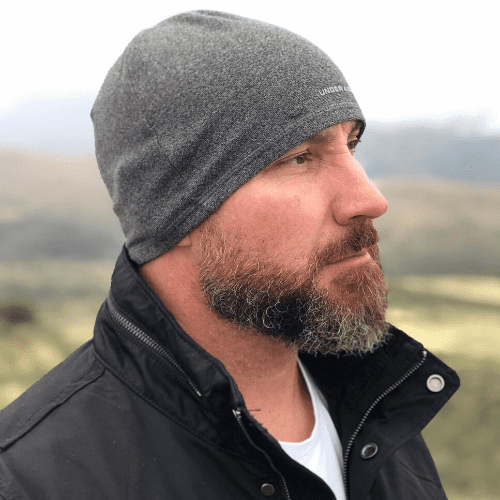Are you dealing with guilt and shame in recovery? Recovery can be a deeply private experience and it’s not uncommon for people to be embarrassed to talk about it or share their stories with others. You may feel stigma surrounding addiction or you may be awash in feelings of personal failure.
In this resource, we discuss guilt and shame in recovery. How to identify it, how to deal with it, and how to share your story with others.
Searching for help with drug and/or alcohol addiction? Call us now at (888) 201-4610.
Identifying Feelings of Guilt in Recovery
One of the most difficult things about guilt is that it can be difficult to identify. We may feel guilty about something but be unable to pinpoint why. Or, we may convinced ourselves that we are guilty when we are not.
This can make guilt a particularly tricky emotion to deal with in recovery.
If you’re struggling to identify guilt in your own recovery, here are a few signs to look out for:
1. You feel bad about something but can’t pinpoint what it is.
2. You keep thinking about a past event or relationships that have been hurt while in active addiction and wondering what you could have done differently.
3. You find yourself comparing your current recovery to a “perfect” recovery and feeling like you measure up.
4. You feel like you need to “fix” more in your life but don’t know what it is.
5. You have difficulty enjoying good things because you feel like you don’t deserve them because of the past.
Guilt is a normal emotion, and it’s okay to feel it sometimes. However, if guilt interferes with your ability to live a happy and healthy recovery, it puts you at immense risk for relapse, and it’s important to address it.
Identifying Feelings of Shame in Recovery
Shame is a common emotion that people in addiction and recovery often feel. Shame can be defined as a feeling of humiliation or disappointment caused by one’s actions or words.
Shame in recovery can become problematic when it leads to negative self-talk, self-loathing, and isolation. In recovery, it is important to identify the signs of shame and address them head-on.
Some common signs of shame include:
- Feeling like you are not good enough amongst others in recovery
- Second-guessing your decisions
- Feeling like an outsider in your recovery community
- Avoiding healthy social situations
- Constantly comparing yourself to others in recovery
- Having an overall negative self-image that you can’t shake
- Struggling to forgive yourself
How Guilt and Shame Can Affect Recovery
Shame and guilt are two powerful emotions that can hurt addiction recovery. Shame can lead to feelings of worthlessness and despair, making it difficult to stay sober long-term.
Guilt can also lead to shame, as people may blame themselves for their addiction or for the bad things that have happened due to their addiction. shame and guilt can also lead to a desire to self-medicate, which can lead to relapse.
Ultimately, shame and guilt can be roadblocks on the path to recovery, so it is important to address these emotions to achieve lasting sobriety.
Thinking About the Things You’ve Done in Active Addiction
In early recovery, it’s common to spend a lot of time thinking about what we did while using drugs. We may feel shame and embarrassment about our behavior and worry that others will judge us.
However, it’s important to remember that addiction is a disease and that we are not responsible for our actions when we are in the throes of addiction. Many of us have done things we are not proud of, but we can’t change the past.
What’s important is that we learn from our mistakes and commit to staying sober. We all make mistakes, but what we do after we make them defines us.
If you are in recovery, be gentle with yourself and don’t dwell on your past. Instead, focus on the present moment and take each day one day at a time.
Owning Your Past Without Shame
Your journey through addiction and recovery is part of who you are. Everyone makes mistakes and goes through trials and tribulations; that’s how we learn and grow. It can be tempting to section yourself off from your old life, saying that this is you and that wasn’t you before.
While understandable, this approach removes you from self-acceptance. Addiction doesn’t form in a vacuum; the old you was suffering and deserves your compassion.
Though it may seem forced initially, make a conscious effort to own your past. Look at old photos and videos of yourself as you used to be. That’s you. You don’t have to slice your timeline and cut that person off from your present identity. It is your past that makes you who you are today.
Without making the mistakes you made, you’d never have achieved this mental fortitude through positive transformation. Accept yourself as you were so that you can completely accept yourself.
Be Proud of How Far You’ve Come
Each day of your recovery is a reason to celebrate. Recovery isn’t about hitting certain milestones; it’s about marking your desire to improve yourself every morning you wake up.
Whether you’ve been sober for ten years or ten minutes, your commitment to the transformation is significant.
Regardless of your path, make sure to take the time to appreciate how much of your path lies behind you. You are on the road to recovery exactly as you are, and that’s more than before.
Even if all you did today was stay in the same place you were yesterday, that’s another day you went without succumbing to the desires of your past. Shame may hold you down by making you think that you aren’t worthy of recovery, that you can’t make progress, or that you’ll never get to where you’re going.
Crush these thoughts with haste. You are already making progress. Count your victories, celebrate your successes, and be proud of yourself for every day that you make it through sobriety. You are worthy of change and will succeed as long as you stay focused.`
The Power of Opening Up to Others
Shame can be a huge roadblock that prevents you from telling other people about your history and keeps you from accessing a source of significant positive influence.
When you share your addiction, recovery, and personal growth story, you benefit yourself tremendously.
Every time you open up the part of yourself that’s vulnerable and self-conscious and are received with warmth and understanding, you’ll come to see yourself that much more favorably as well.
Even if your self-confidence is already high, feeling welcomed into the world by other people you trust can work wonders for your emotional stability.
While it may be uncomfortable initially, working to overcome shame and share your story can make a lasting difference in your self-perception throughout recovery.
Start small by opening up to someone you trust, even someone who’s already aware of what you’ve been through, so you can have a positive experience retelling your story in your own words.
Once you’ve been positively received, or at least received less negatively than you might have expected, you may choose to visit the place you received treatment to visit with current patients and share your story there.
This is a common practice for recovery patients that is often strongly encouraged by treatment centers.
In addition to helping yourself, sharing your story can also greatly influence the people who hear it.
Whether or not your listeners are struggling with substance use, hearing your tale of transformation and dedication can inspire them to change any areas that need attention.
Seeing your strong values and triumph over challenges can also help them to appreciate and admire you more as a person and seek to attain the same for themselves.
Opening up to others is one of your most powerful tools for beating shame and regaining control over the narrative of your personal growth.
Accepting yourself and gaining the acceptance of people you trust can help you treat your recovery like a solvable problem instead of an internal wrong tied to your self-worth.
If you or a loved one are struggling with alcohol or substance use, mental stability, or other forms of personal challenges, effective help is available. Cornerstone Healing Center in Scottsdale, Arizona, offers a one-of-a-kind approach to addiction, recovery, and growth.
We provide individualized support to help you meet every aspect of your well-being with intention and confidence.
We combine evidence-based treatments with dedicated staff and a thriving support network of peers and sponsor relationships to help get you back on your feet and transition into long-term health and happiness.
Don’t wait to get help in achieving emotional clarity. Give yourself a clean slate and move forward into the life you’ve always wanted for yourself.
Why Other People Need to Hear Even the Hardest Parts of Your Story
It may be a relief for you to understand that every single person in active addiction has made mistakes they wish they could take back. In recovery, it takes time to move past those mistakes. By sharing your story with others, you can help others who are feeling shame or guilt in recovery.







